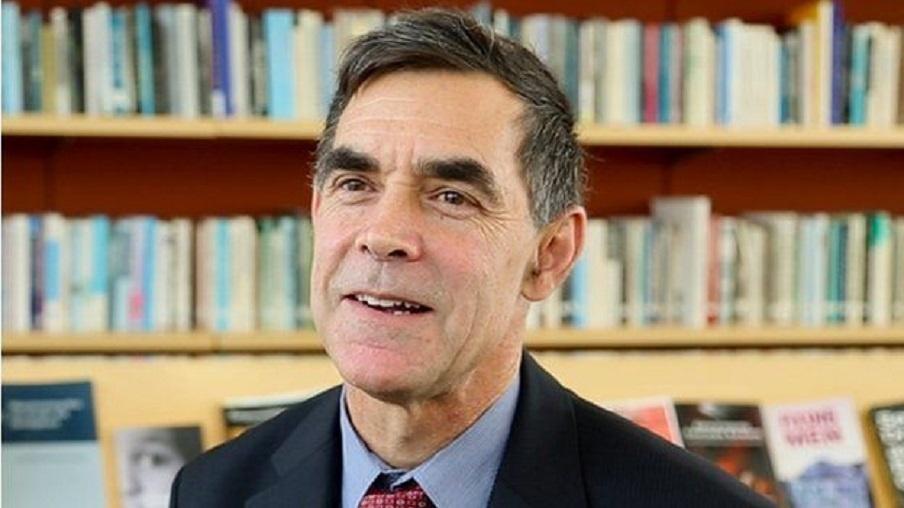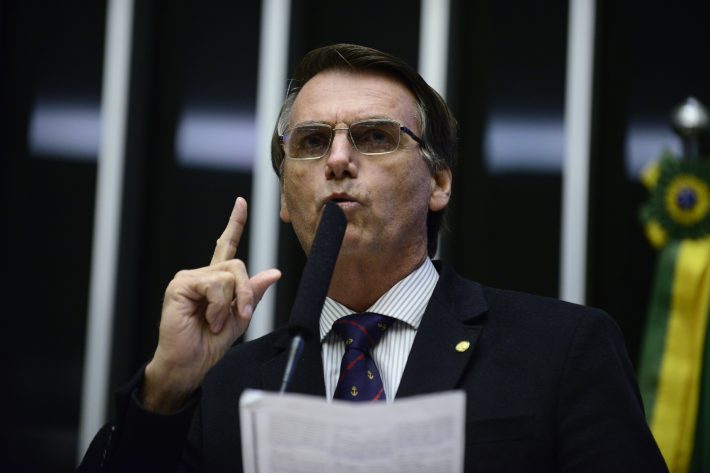RIO DE JANEIRO, BRAZIL – For the Brazilianist Anthony Pereira, director of research on Brazil at King’s College London, one of the UK’s leading academic institutions, the country’s reputation abroad has changed for the worse in the 18 months of Jair Bolsonaro‘s administration.

The President’s behavior, particularly when faced with the health crisis caused by the novel coronavirus pandemic, stated Pereira, has led to criticism of Brazil from across the political spectrum in the United States and the United Kingdom.
“People abroad know that President Bolsonaro said ‘so what?’ when asked about deaths from the coronavirus. They found out that a judge ordered him to wear a mask when walking around Brasília. And they know that international investors are threatening to pull their investments from Brazilian meat and grain production due to the rising deforestation rates in the Amazon. The Bolsonaro government has changed Brazil’s international reputation. And the change was largely negative,” said the Brazilianist.
Since the military dictatorship, we have never had so many military officers in a civilian government. How do you analyze this and also the positive assessment of the military?
It’s a rather exceptional situation. [There are] almost half the cabinet and nearly three thousand military officers working in the Ministries. But the situation poses a risk to the officers themselves. They are attracted by political conflicts and become advocates for the government, not part of the state machinery.
The Army is popular among Brazilians, but people are closely monitoring how it exercises power and how it behaves amid extraordinary conflicts between different players at the different government levels. To me, more worrying than the military presence in government is the President’s popularity among state police forces and militias in Rio, and the potential tendency of the President and his advisers to use this popularity as a weapon in future political conflicts.
Some people fear the prospect of a military coup.
I don’t see much chance of an old-fashioned 1964 coup in which the military is mobilized against other sectors. But slow and insidious authoritarianism is most likely. Imagine, for instance, if President Bolsonaro could persuade Congress to grant him the authority to declare a state of siege. What could he have done? We know from many sources that he has said that his basic instincts are authoritarian when it comes to governing.
On the other hand, there are 48 impeachment petitions in Congress and motions calling for Jair Bolsonaro to be removed.
There is a health emergency because of the pandemic and the death toll is rising. The economy has collapsed and is projected to contract by seven percent or more this year. Given the situation, I do not see much inclination to start an impeachment process and months-long attempt to oust the president, at least on the part of Rodrigo Maia, the Chamber president.
Even if the process began, Bolsonaro has made many concessions to the [congressional party bloc] Centrão and may have already made enough – or will make enough in the coming months – to secure 1/3 of the votes in each House (Chamber and Senate) he would need to defeat an impeachment.
The government’s negative assessment reached 50 percent in a May poll. A year ago, that rate was less than 25 percent. To what do you ascribe this change?
It is a matter of several different support currents for the Bolsonaro government losing faith. The supporters of Lava Jato are disappointed with the resignation of ex-Minister Sérgio Moro and his allegations that the president tried to interfere in Federal Police investigations to protect his sons. If Fabrício Queiroz accepts a plea bargain, his evidence could reinforce the perception among Lava Jato supporters that the Bolsonaro government is not special when it comes to corruption.
Another large group of people are disappointed with the President’s reaction to the coronavirus. They want him to listen more to public health experts and stop encouraging people to behave in such a way that spreads the virus. They believe more in ex-Minister of Health Luiz Henrique Mandetta than in the President. They believe more in most governors than in the President.
Even the Olavists, led by their guru Olavo de Carvalho, seem to be critical of the government. Perhaps they believe that Bolsonarism is more important than Bolsonaro and that the former may last longer than the latter.

Do you believe that Brazil’s international reputation has changed during these 18 months of government?
The Bolsonaro government has changed Brazil’s international reputation. And the change was largely negative. President Bolsonaro himself is perceived as persona non grata, a leader who lacks compassion, common sense, and administrative capacity. This perception can be found across the political spectrum in the US and the UK – in conservative newspapers, not only in left-wing publications.
People abroad know that President Bolsonaro said “so what?” when asked about the coronavirus deaths. They found out that a judge ordered him to wear a mask when walking around Brasília. And they know that international investors are threatening to pull their investments from Brazilian meat and grain production, and maybe even government bonds, due to the growing deforestation rates in the Amazon.
How do you view the relationship with the United States and President Donald Trump?
Even President Trump, whom President Bolsonaro followed and copied, seems not to think much about the Bolsonaro government. In addition, the Trump administration is trying to break with a diplomatic tradition and has appointed an American to head the Inter-American Development Bank (IDB).
It seems that the Bolsonaro government will endorse the US candidate, which is part of a pattern in which it makes unilateral concessions to the Trump government and gets nothing in return. In short, the Bolsonaro government does not have many friends that I can see in Europe, the United States, or elsewhere. It has become a leader, but a leader in a negative sense.
What is the assessment of Jair Bolsonaro in the international scene in fighting the pandemic?
Bolsonaro stands out as a leader who refused to listen, to learn, and to change courses when nearly all the other leaders changed course because of advice from public health authorities. Brazil has a relatively good medical research and public health infrastructure. But it has undermined it by spreading chaos and conflict.
To use a soccer coach’s analogy, he had a good team, but kept the best players on the bench and used bad tactics. So he’s losing the game.
Source: O Estado de S. Paulo

